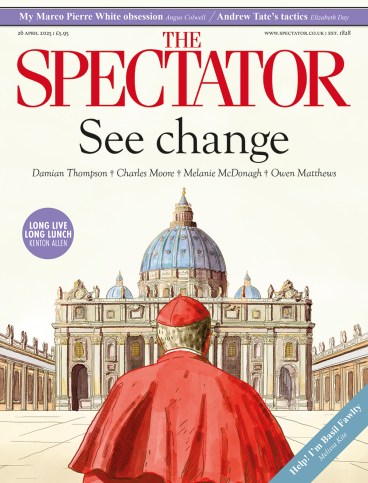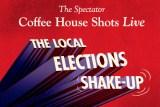
Could the end of non-crime hate incidents (NCHIs) be in sight? As the head of the Free Speech Union, I’ve been campaigning for their abolition for five years and there was a breakthrough this week with the Conservatives unveiling a plan to scrap them. Chris Philp, the shadow home secretary, is going to table an amendment to Labour’s Crime and Policing Bill that would make it illegal in almost all circumstances for the police to collect or retain personal data relating to hate incidents where no laws have been broken.
For those unfamiliar with this Orwellian concept, an NCHI is a record the police make when someone accuses you of a ‘hate crime’ and they can find no evidence a crime has been committed. That sounds odd. Why would the police bother to record ‘non-crimes’ when there are so many actual crimes they could investigate? It’s even odder when you consider some of the reports the police have followed up, such as the man in Bedfordshire who ended up with an NCHI recorded against him after his neighbour told the police he started whistling the theme tune to Bob the Builder whenever he saw him.
If such incidents were a rarity, perhaps it wouldn’t matter. But according to Freedom of Information requests submitted by the Telegraph, 119,934 were recorded between 2014 and 2019, an average of 65 a day. A statutory code of practice was issued in 2023 designed to get the police to use more common sense when it comes to NCHIs, but data obtained by the Free Speech Union shows the new guidance is being ignored. In some areas, the number being recorded has actually gone up since 2023.
So what, you might think. Aren’t NCHIs just a way for the police to fob off oversensitive complainants, like the neighbour in Bedfordshire? ‘Don’t worry, sir. We’ve notified the gentleman that we’ve recorded his vexatious whistling as a non-crime hate incident. If you’d like to contact our victim support service, the details are on our website.’ No such luck. In fact, an NCHI can show up on your criminal record if you apply for a job that requires you to have an enhanced Disclosure and Barring Service (DBS) check. That means if you want to work as a teacher or volunteer with the Samaritans, you might not be able to because you’ve committed a ‘non-crime’. When they’re recorded against children, they don’t get deleted from their criminal records when they reach the age of 18, unlike cautions for actual crimes.
Even the police have concluded that meticulously logging this data is a waste of time. The origins of NCHIs are quite murky, but had something to do with the College of Policing wanting to shield the police from accusations of not doing enough to tackle hate crime in the wake of the Macpherson Report. Fear not, was the message – henceforth, we will take every report of a hate crime seriously and if we conclude no crime has been committed we will record the episode as an NCHI so we can gather intelligence that will help us form a picture of where community tensions are rising and contain them before they erupt into actual criminality.
Why would the police record ‘non-crimes’ when there are so many actual crimes to investigate?
This ‘intelligence’ argument is often wheeled out by defenders of NCHIs, but the police don’t appear to believe it themselves, since they rarely analyse the data. According to FoI requests submitted to police forces by the Telegraph, no analysis of this ‘intelligence’ is undertaken by the Met, Greater Manchester or West Midlands forces. Little wonder that a report by Andy Cooke, His Majesty’s Chief Inspector of Constabulary, concluded last year that far too many NCHIs are being recorded, often simply involving ‘hurt feelings’. ‘The police are not the thought police,’ he said.
Philp’s amendment allows for the police to still record hate crime reports where they’re likely to assist in the detection or prevention of a crime, subject to various conditions. But these records won’t be labelled NCHIs and won’t show up on enhanced DBS checks. So who could possibly object? The answer is the government, which seems to actually want the constabulary to act as the ‘thought police’. In November, the Home Office said it wanted the police to record more NCHIs in relation to anti-Semitism and Islamophobia. ‘Over the past 12 months there has been a big increase… and it’s really important that police forces are able to track and monitor that,’ it said.
The amendment will probably not pass in the Commons, but I’ll re-table it in the Lords and, even if it fails there, at least the Tories are now committed to scrapping them. Finally, there’s light at the end of the tunnel.









Comments